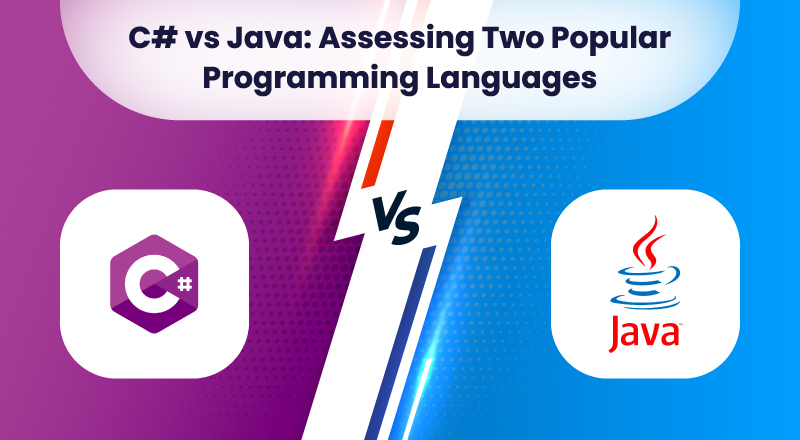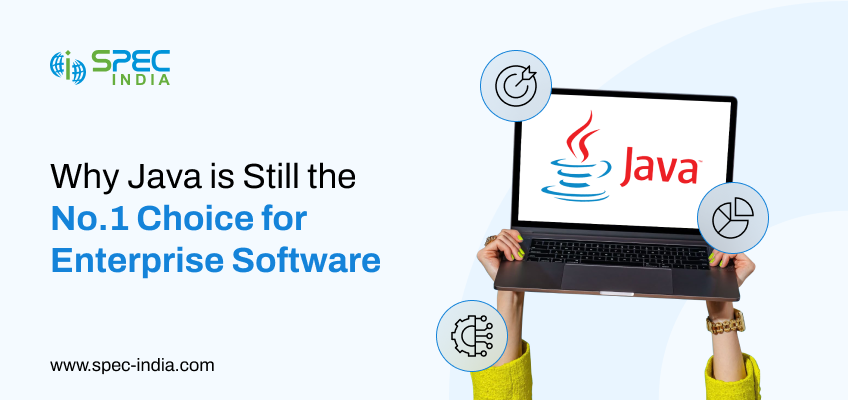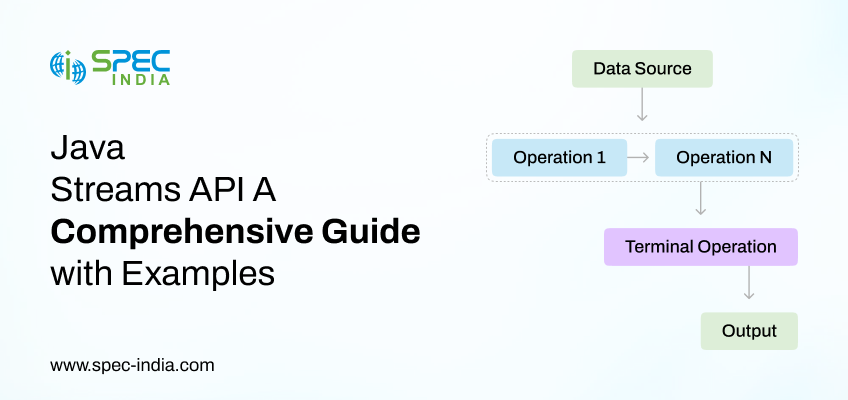C# vs Java: Assessing Two Popular Programming Languages

With so many programming languages available, making the right choice for your project can be challenging. You can choose the wrong one and face the consequences, or you can choose the right one, and everything will work perfectly.
Two programming languages are often a developer’s delight, but a matter of comparison is C# vs. Java. Programmers usually implement their Java and C# programs to create desktop apps, backend development, Windows client applications, mobile apps, enterprise apps, games, cloud-driven services, etc. Both enjoy their fanbase and have been topping the global popularity charts.
Both these languages belong to the ‘C-family,’ have general purposes, and are imperative, but they have similarities and differences. This article emphasizes the overview of Java vs C#, its advantages and disadvantages, and their evaluation based on standard parameters.
What is C#?
C# is an object-oriented, component-oriented programming language. C# provides language constructs to directly support these concepts, making C# a natural language to create and use software components.
As a modernized, general-purpose language, C#, also known as C Sharp, was released alongside the .NET framework and Visual Studio. C# programs are executed through .NET CLR and other class libraries. It is a prevalent type-safe language that ensures robust version control features that keep libraries and programs current. It is designed around CLI standards and is ideal for novices to learn.
As a generic, scoped, and strongly typed language, implementing C# supports software fundamentals like garbage collection, array bounds, etc., offering portability and platform independence. It supports many modern features such as internationalization, third-party integration, simplistic coding, and operating and embedded systems applications.
What is Java?
Java is a programming language and computing platform first released by Sun Microsystems in 1995. It has evolved from humble beginnings to power a large share of today’s digital world by providing a reliable platform upon which many services and applications are built.
As a developer’s delight, Java has been a prevalent language that is general purpose, concurrent, object-oriented, and class-based. Applications created in Java can be executed on any Java Virtual Machine (JVM) after being compiled into bytecode. It goes by the concept of ‘Write once, Run anywhere.’ Multiple websites and applications may not work well unless Java is installed since it is a computer platform.
Java is a software platform leveraged by multiple devices, such as computers, notebooks, mobile devices, medical devices, game consoles, etc. Being a dependable and secure language, Java’s fundamentals rely on the C and C++ languages. It is more like a merger of software basics and other specifications. Developers have the flexibility to rewrite or reuse code to create new code, offering a great experience.
C# vs Java: Pros and Cons
Pros of C#
- Simple and secure extension methods
- Lambda, LINQ expressions and generics support
- Powered by Microsoft Corporation
- Automated garbage collection and memory management
- Backward compatibility
- Assembly versioning
- There is no need for any explicit coding
- Inheritance, polymorphism, abstraction, encapsulation
- Native support for Windows-based and COM-supported apps
- Properties with getting/set methods
- Top cross-platform support
Cons of C#
- It is less flexible since it depends on the .NET framework
- Larger learning curve
- Not very attractive graphical user interface
Pros of Java
- Interpreted, threaded, and dynamic
- It can execute on almost any platform and network
- Ideal for creation and integration of object-oriented programming models
- Easy access to detailed documentation and skilled resources
- Multiple task execution because of a multi-threaded environment
- A wide variety of third-party libraries, easily navigable
- Easy and simple to learn syntax
- Inheritance, abstraction, polymorphism, encapsulation
- Just-in-time (JIT) compiler for high-performance coding
- Bytecodes independent of the computer’s architecture
- Effective memory management by automated garbage collection
Cons of Java:
- Slower because of the JIT compiler
- Lack of support for low-level programming constructs such as pointers
- Needs high memory and processing requisites
Java vs C# – Organizations Using Them
Companies Using Java
Airbnb, LinkedIn, Twitter, CRED, Pinterest, Lyft, Netflix, Accenture, Uber, Instagram, Bitpanda, Spotify, DoorDash, Google, Paytm, Amazon, CashApp, trivago, Hubspot, etc.
Project And Task Management Software (Web & Mobile App)
Companies Using C#
Intuit, Alibaba, Statista, Delivery Hero, Bank of America, Okta, Banshee, Unacademy, Stack Overflow, FlashDevelop, Cisco, Accenture, Olo, Hepsiburada, Venmo, Runtasitc, etc.
C# vs Java: The Similarities
- Server-side, backend programming languages
- Inspired by the C family of languages
- Object-oriented languages focus on classes and objects
- High-level languages, easy to write and learn
- Scalability to handle high volumes of data well
- Dependency on C and C++
- Generation of intermediate language code post-compilation
- Garbage collection
- Similar syntax
- Support for multiple-class inheritance
- Well-documented languages with supportive communities
C# vs Java: Understanding the Differences
| Parameters |
Java |
C# |
| Year of Creation |
1995 |
2000 |
| Owner |
Oracle |
Microsoft |
| Overview |
A class-based, server-side, high-level, general-purpose, backend, object-oriented programming language |
An object-oriented, server-side, high-level, general-purpose, backend, component-oriented programming language |
| C# Vs. Java Performance |
Performance and speed are faster as compared to C# |
Performance and speed are slower as compared to Java |
| Installation |
Needs JDK to execute Java programs |
Has a vast library of codes offered by .NET |
| Runtime Environment |
Runs on Java Runtime Environment (JRE), which is a software layer that executes on top of the OS and provides class libraries needed |
Runs on Common Language Runtime (CLR) that offers services to make the entire development process execute smoothly and effectively |
| Arrays |
Java-based arrays specialize in Objects. They are a collection of variables referred to by a single variable name and index number. |
C #- based arrays are a specialization in the System. They are structures that show a fixed-length collection of values of the same type. |
| Pointers |
There is no support for this feature |
Support this feature |
| Programming Idea |
Object-oriented only |
Object-oriented, component-oriented, strongly typed, functional |
| Public Classes |
Can have a single public class |
Can have multiple public classes |
| Operator Overloading |
There is no support for this feature |
Support this feature |
| Security |
It is highly secure since it is statically typed with code verification |
Since there are many features, it is more susceptible to attacks |
| Checked Exceptions |
Support for checked and unchecked exceptions |
There is no support for checked exceptions |
| Tools/IDE |
Eclipse, NetBeans, Jenkins, Site24x7, Junit, Intelli J IDEA, EclipseEdit, NetBeansEdit, JCreatorEdit, BlueJEdit, Maven, JBuilderEdit, Mockito |
Visual Studio, Mono Develop, VS Code, Kite, SlickEdit, Eclipse aCute, NotePad++, Rider, Atom, DevExpress, dotPeek, Telerik Code Converter, Git, Cake Build |
| Conditional Compilation, Go-to statement, Structure and Union |
There is no support for these features |
Supports these features |
| Support for Generics |
Implemented with casts and erasures, added into bytecode with compilation |
Integrated with CLI and permits type information to be accessible during runtime |
| Safety Type |
Type Safety in Java is Safe |
Type Safety in C# is Unsafe |
| Inbuilt Datatypes |
Inbuilt datatypes passed by value are known as simple types |
Inbuilt datatypes passed by value are known as primitive types |
| Control for API |
Controlled by an open community approach |
Controlled by Microsoft |
| Routing |
Makes use of Akka. routing for routing configuration |
Makes use of ASP .NET for routing configuration |
| Possible Job Titles |
Software Engineer, Business Analyst, Data Analyst, DevOps Engineer |
Software Engineer, Business Analyst, Data Analyst, DevOps Engineer |
C Sharp vs Java: When to Use What?
Use Java when:
- You need access to a comprehensive codebase and community
- Portability and interoperability are more important
- There is a need to create web-based, desktop, mobile, high-precision, IoT, server-based apps or scientific applications
Use C# when:
- It would be best if you had programs on the .NET platform or Windows-specific programs
- There is a need for speed and modern features like garbage collection
- You are creating mobile apps, web apps, enterprise software, or video games
Till Later
Since both have carved a niche for themselves, comparing C# and Java infers that both have a bright future. Both have invested heavily in acquiring developers’ trust and will enjoy a bright future. You can select the desired language based on what we discussed in the previous section.
Other parameters are essential in selecting the right one as we compare Java vs. C#—cost considerations, skilled resource availability, project deadlines and requirements, etc. The brighter side for both is that access to professional resources is easy, and you can get the required task force for your projects in the desired time.
As a steering Java development company, we develop scalable, reliable, secure, and cross-platform web and mobile applications for different domains and enterprises based on Java’s contemporary competencies and aptness.
Our well-informed Java developers can design and develop full-stack, all-inclusive Java-based solutions, including complex, multi-layer web applications, custom product development, integration with third-party tools for high performance, legacy app migration, product reengineering monitoring, and customization of existing applications.
You can hire Java developers from SPEC INDIA to create robust Java solutions that meet continuously changing business needs and prepare your business for the future. Our Java developers are knowledgeable in handling top ORM frameworks like Spring, Struts, and Hibernate and have a vital insight into Core Java, Advanced Java, and J2EE.
SPEC INDIA is your trusted partner for AI-driven software solutions, with proven expertise in digital transformation and innovative technology services. We deliver secure, reliable, and high-quality IT solutions to clients worldwide. As an ISO/IEC 27001:2022 certified company, we follow the highest standards for data security and quality. Our team applies proven project management methods, flexible engagement models, and modern infrastructure to deliver outstanding results. With skilled professionals and years of experience, we turn ideas into impactful solutions that drive business growth.







